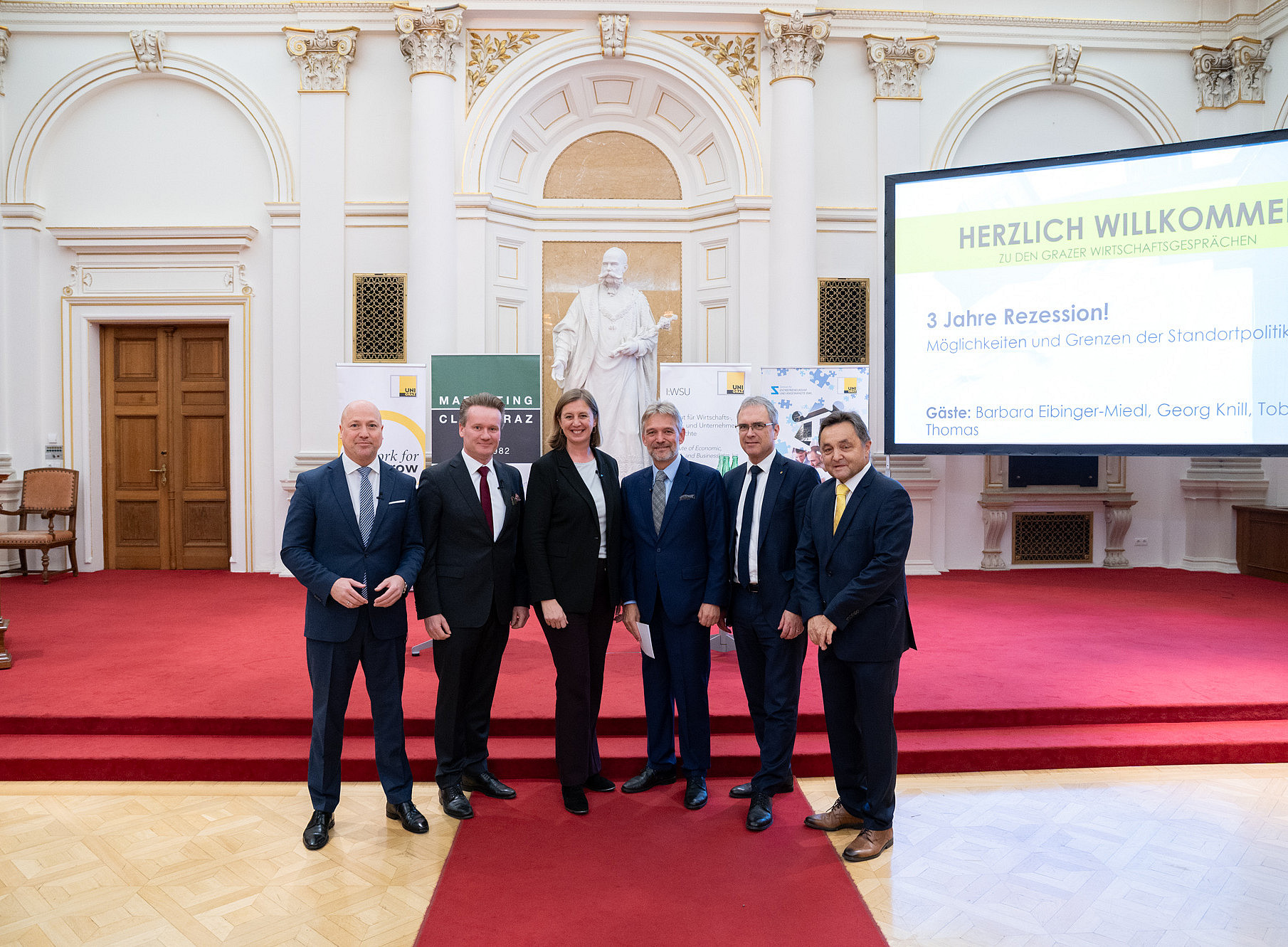How is the Austrian economy doing after three lean years? Tobias Thomas, professor of economic policy at the University of Graz, Georg Knill, president of the Federation of Austrian Industries, and Barbara Eibinger-Miedl, state secretary in the Ministry of Finance, addressed this question. They highlighted the reasons behind Austria's prolonged recession and pointed out ways in which we can get back on track together.
Economist Thomas began by presenting concrete facts: between 2020 and 2025, wage levels in Austria rose by an average of 27 percent, while in Germany they rose by 15 percent over the same period. This makes products from Austria more expensive. With a tax burden of 47 percent of income, the country is also among the leaders in the EU, leaving people with little of their gross wages. And given the tight budget figures, this is particularly serious: 55 percent of economic output comes from the public sector. “Austria is more of a state economy than a market economy,” Thomas summed it up.
IV President Knill named three key hurdles for Austria's economy: high wage costs, expensive energy, and complex bureaucracy, because Austria itself interprets EU regulations particularly strictly. “We must not delude ourselves here: the deindustrialization of the country is already taking place.” And if Germany really introduces industrial electricity at 5 cents/kWh, the trend will accelerate.
Structural reforms
State Secretary Eibinger-Miedl also saw the energy sector as a major burden on international competition. However, she criticized the fact that companies are increasingly adopting the idea that The state will support us. She announced an end to indiscriminate subsidies. “What we need now are structural reforms, and everyone involved understands that something must be done.” She described research and development as one of Austria's greatest strengths. Her appeal: Scientific breakthroughs must be put into practice more quickly and integrated into companies.
Georg Knill cited Italy as a cautionary yet positive example: the economy there stagnated for many years and nothing was done about it. But for around five years now, tough reforms have been implemented. Today, Italy is in a better economic position than Austria. In fact, University of Graz professor Thomas also saw the current recession as an opportunity. “Major changes often happen in times of crisis and with a young government.”
State Secretary Eibinger-Miedl promised concrete steps. In the coming weeks, a major reduction in bureaucracy is to be implemented, a dedicated scale-up fund is to help start-ups in the critical growth phase, and pensions are also secured for the time being thanks to the planned reforms. However, she noted that reforms must always take care to get the population on board.
Creative destruction
Georg Schneider, Dean of the Faculty of Social Sciences, wanted to bring a different perspective to the discussion by introducing Joseph Schumpeter's concept of creative destruction. This concept states that innovation and new production processes destroy old structures. Specifically, the dean asked IV President Knill whether the disappearance of certain industries would not also create space for new, innovative companies.
Knill found the concept appealing in principle, but drew attention to an important industrial policy issue: resilience. The EU wants to become independent, for example in terms of chips, energy, and rare earths. And to achieve this, it needs the relevant industrial companies in Europe.
For former rector and University of Graz professor Alfred Gutschelhofer, who launched this format 15 years ago, these economic discussions marked the end of his active role as organizer. He is retiring. In the future, the organization will be in the hands of Rector Peter Riedler in collaboration with Thomas Krautzer, professor of economic location issues and location development.
Curious to find out how all these pieces of the puzzle, from global markets to start-ups, fit together? Then a degree in economics or business administration might be the right choice for you.
